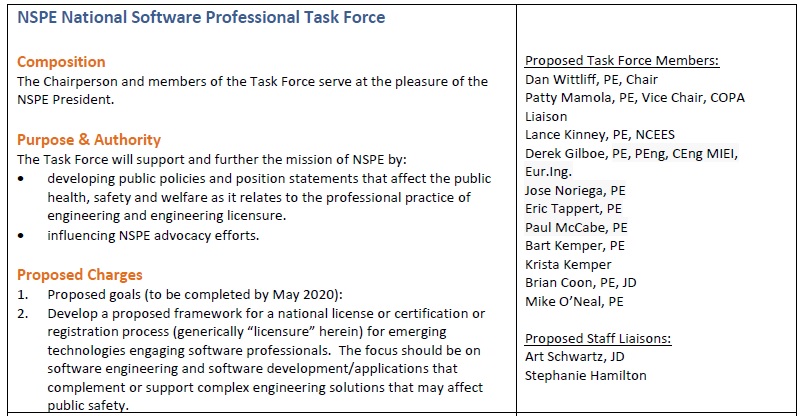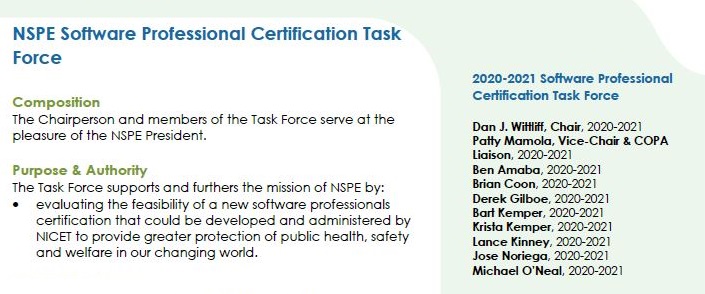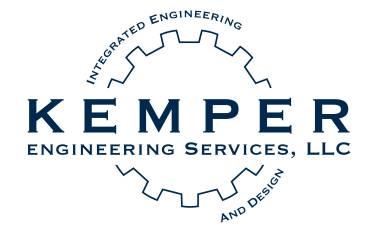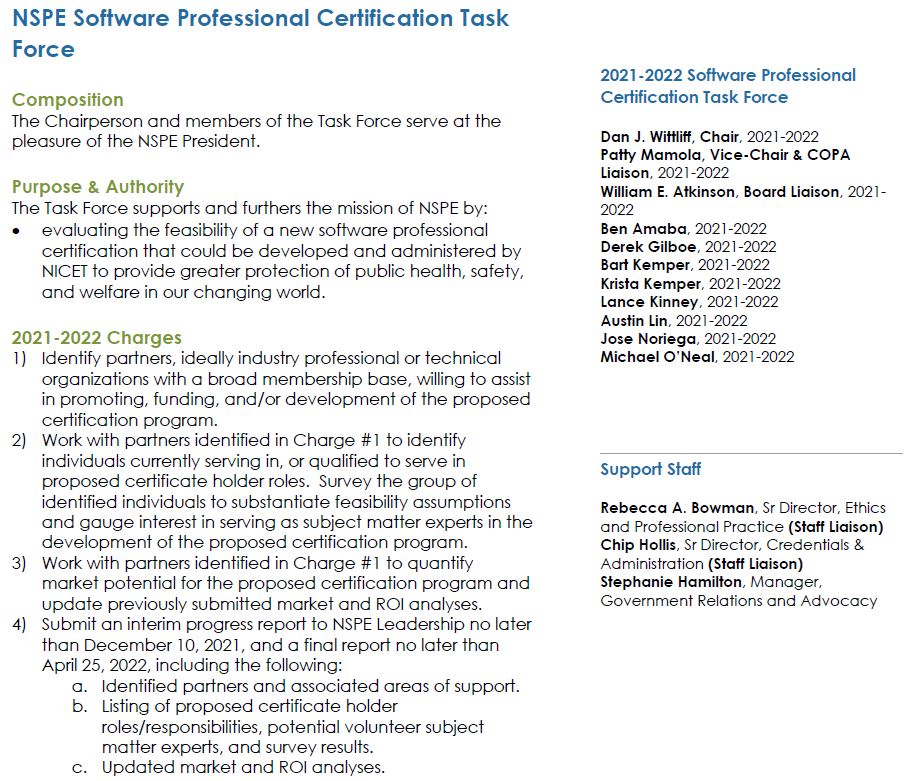Krista Kemper and Bart Kemper have wrapped up three years of being part of a multi-discipline National Society of Professional Engineers committee, the National Software Professional Task Force, to support the development of an industry certification program for a dedicated Systems Software Integrator program. This effort is in direct response to events such as the 737 MAX crashes and multiple incidents involving autonomous vehicles. These incidents capture the public’s imagination and fear, but the underlying issue has been developing as more and more software supplants both traditional control methods and, in some cases, replaces the human operator.
While software is generally a successful part of modern equipment and products, in many ways the software industry has been seen to be holding itself apart from the accountability other industries see as accepted best practice. The significant commonality in the majority of high-profile software-induced failures is a lack of a Systems Integration Test. The “Systems Integration Test” is where activation lag, physical interferences, circuit heat buildup, and other actual “system friction” is evaluated with software performance. While there are many examples of where software is properly fielded and integrated, ranging from cars to aircraft to manufacturing processes, the failures frequently demonstrate a gap between hardware and the software that has replaced other systems that once were part of “engineering.” This has a direct impact on present and projected interstate commerce.
Using her experiences in the software industry coupled with her time working in Codes & Standards committees, Krista has been a tireless advocate for recognizing the proven experts in the field who are often not traditional “degreed engineers”. A previous attempt to treat software engineering with traditional licensure as a Professional Engineer was attempted and failed, in part because it was seen to potentially excluded many professionals in the field from jobs they were already doing. Krista experience was invaluable in ensuring the nature of the “ground level” of the software industry was understood, such as sharing her experience with being tasked to test medical equipment software “as a software engineer.” She was a key influencer in changing the model from the initial concept of “licensure” into the current mode of “certification,” in concurrence with committee members who are currently in the computer industry.
This NSPE committee has recommended “certification” because it is consistent with the software industry’s practices. A certification program for what is conceptually called a “Systems Software Integrator” would be leveraged by both the private and public sectors to enhance the public safety as industries integrate sophisticated and complex automated systems. There are best practices in place, under different internal program names and permutations. These best practices prove the value of empowering the person integrating the software into the systems to be as much of a “lead” as the structural or electrical leads, who are generally degreed engineers. Certification would evaluate software development knowledge as well as knowledge of the industry and is being developed by NICET.
Initial feedback from industry has been extremely positive. The work of this NSPE committee may continue in the same format or split out into more direct engagement. Kemper Engineering supports its members in volunteer work and outreach, whether it’s local trash clean up or volunteering for national policy committees or Codes & Standards work.

The initial NSPE National Software Professional Task Force, 2019-2020, which started with many traditional licensure concepts.

NSPE National Software Professional Task Force 2020-2021, with the approach of “certification” being recommended at the beginning of this second year. The initial industry reception was very positive and development is continuing, resulting in a third year starting in the fall.


Recent Comments